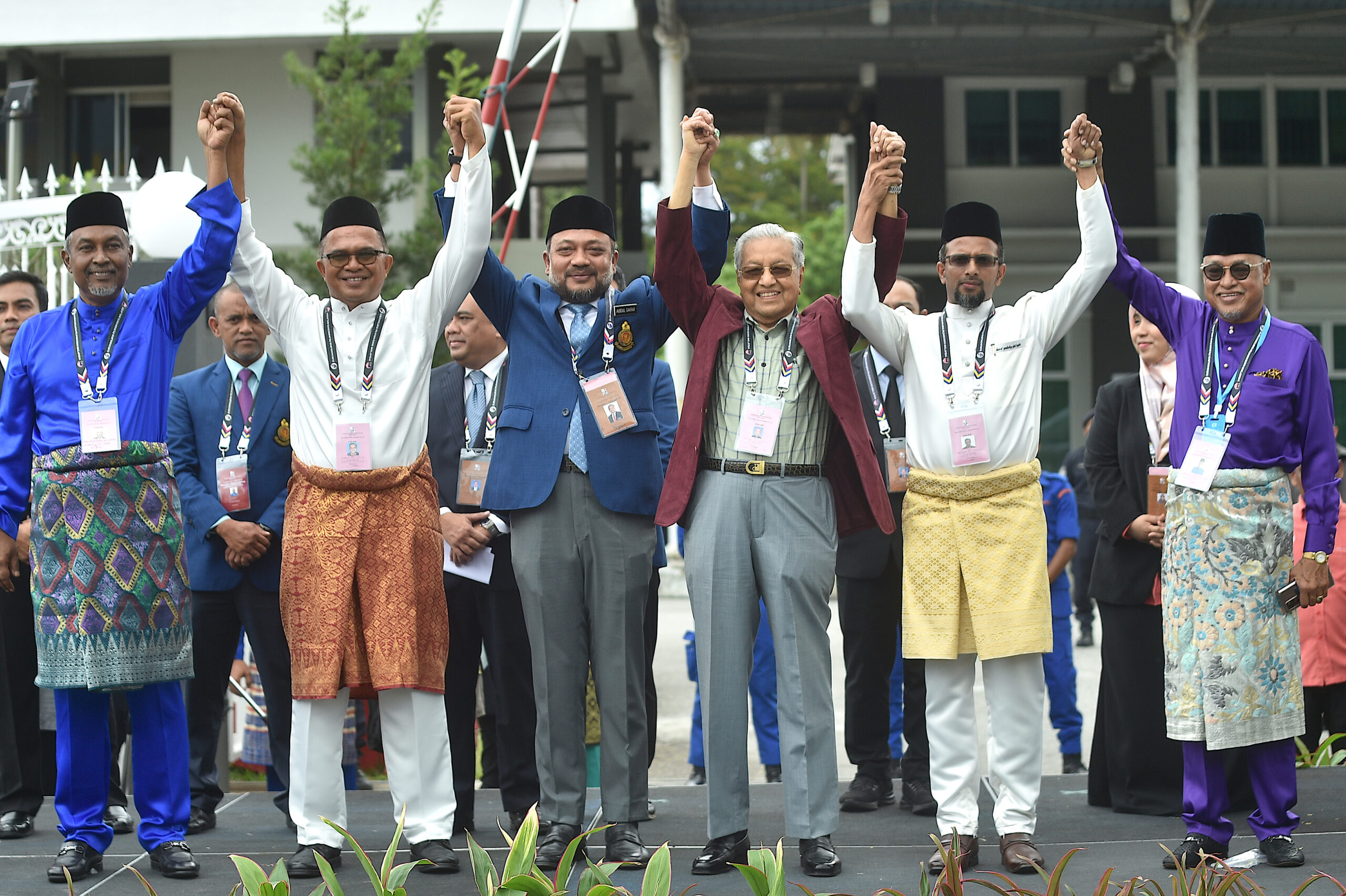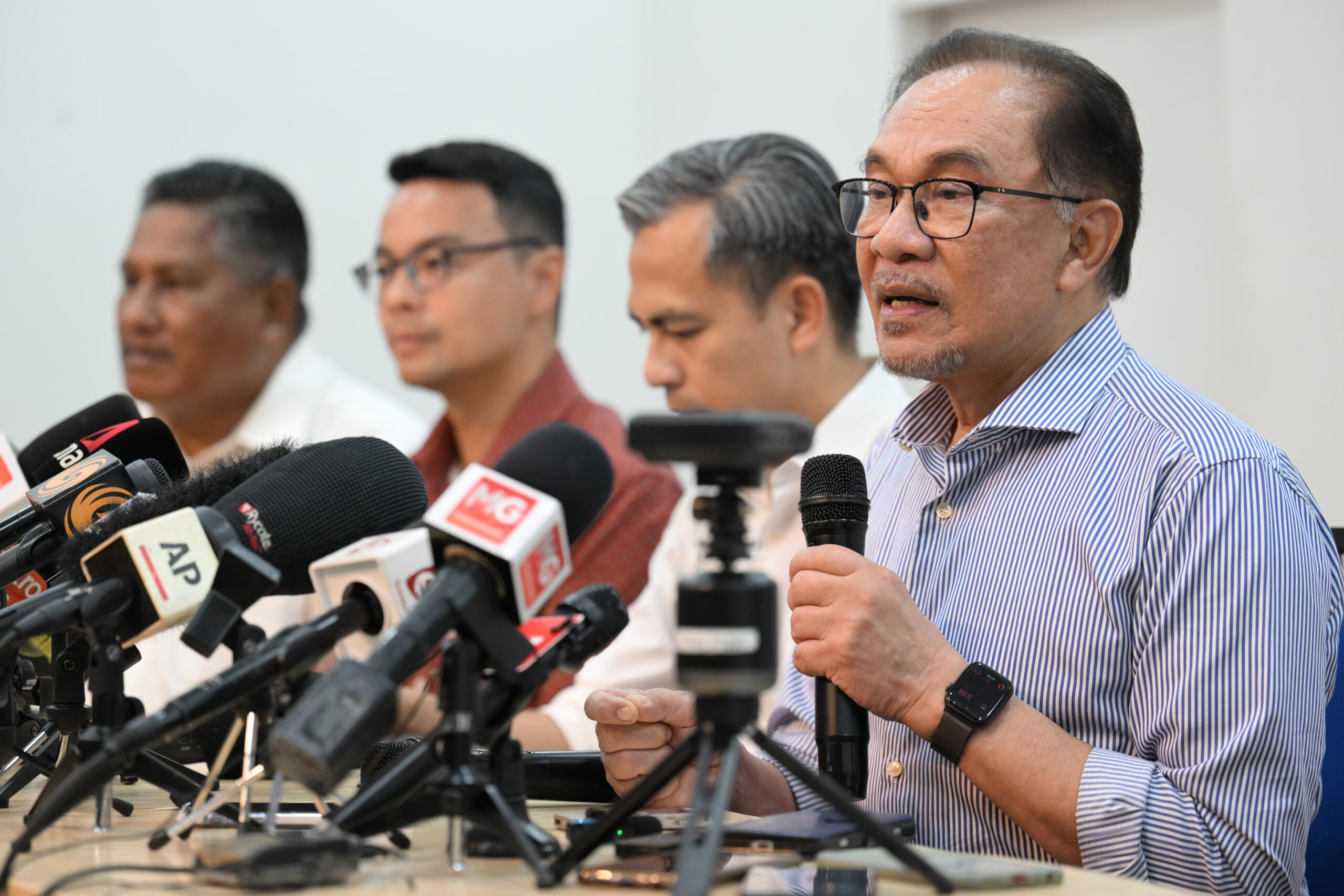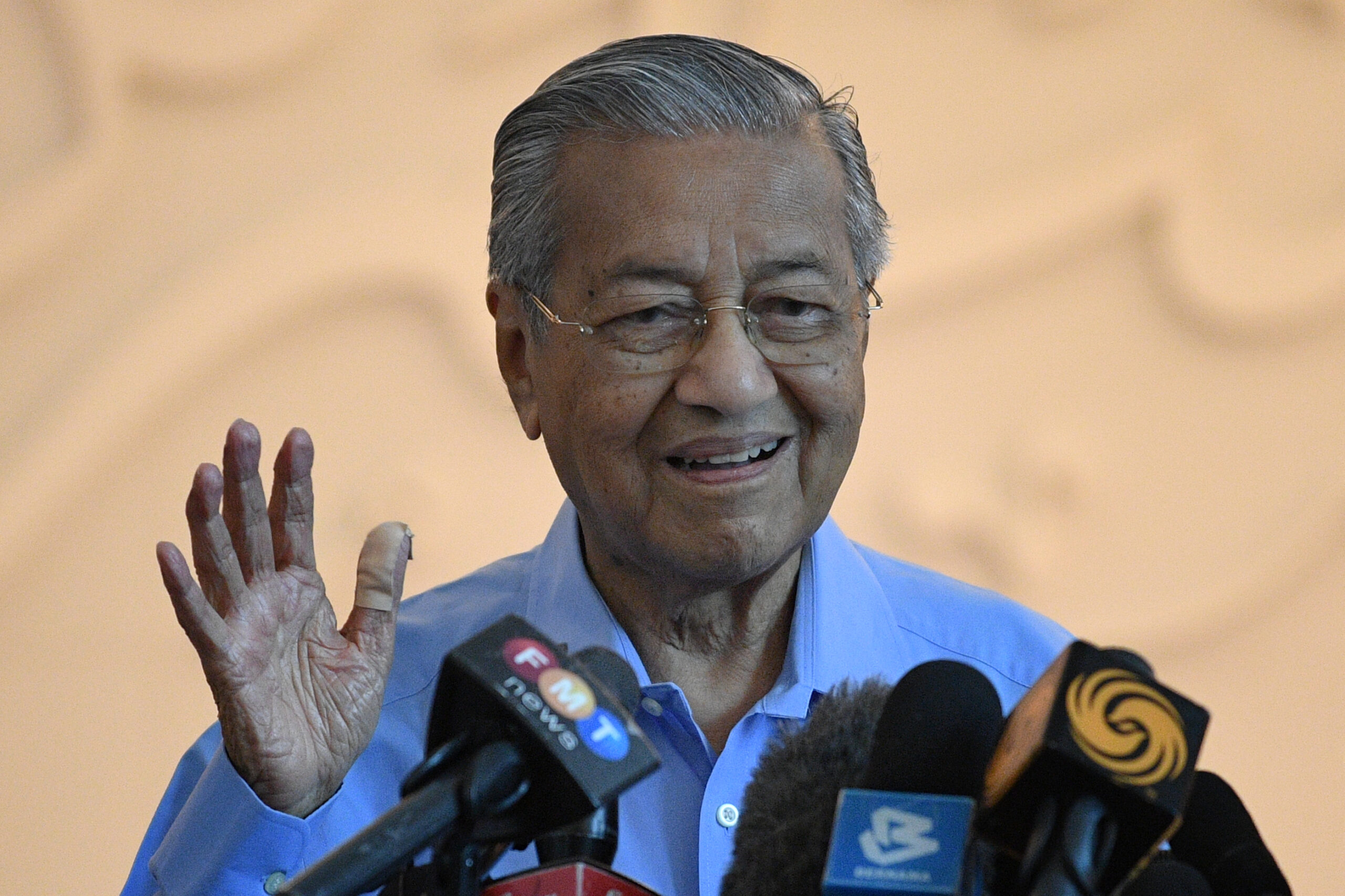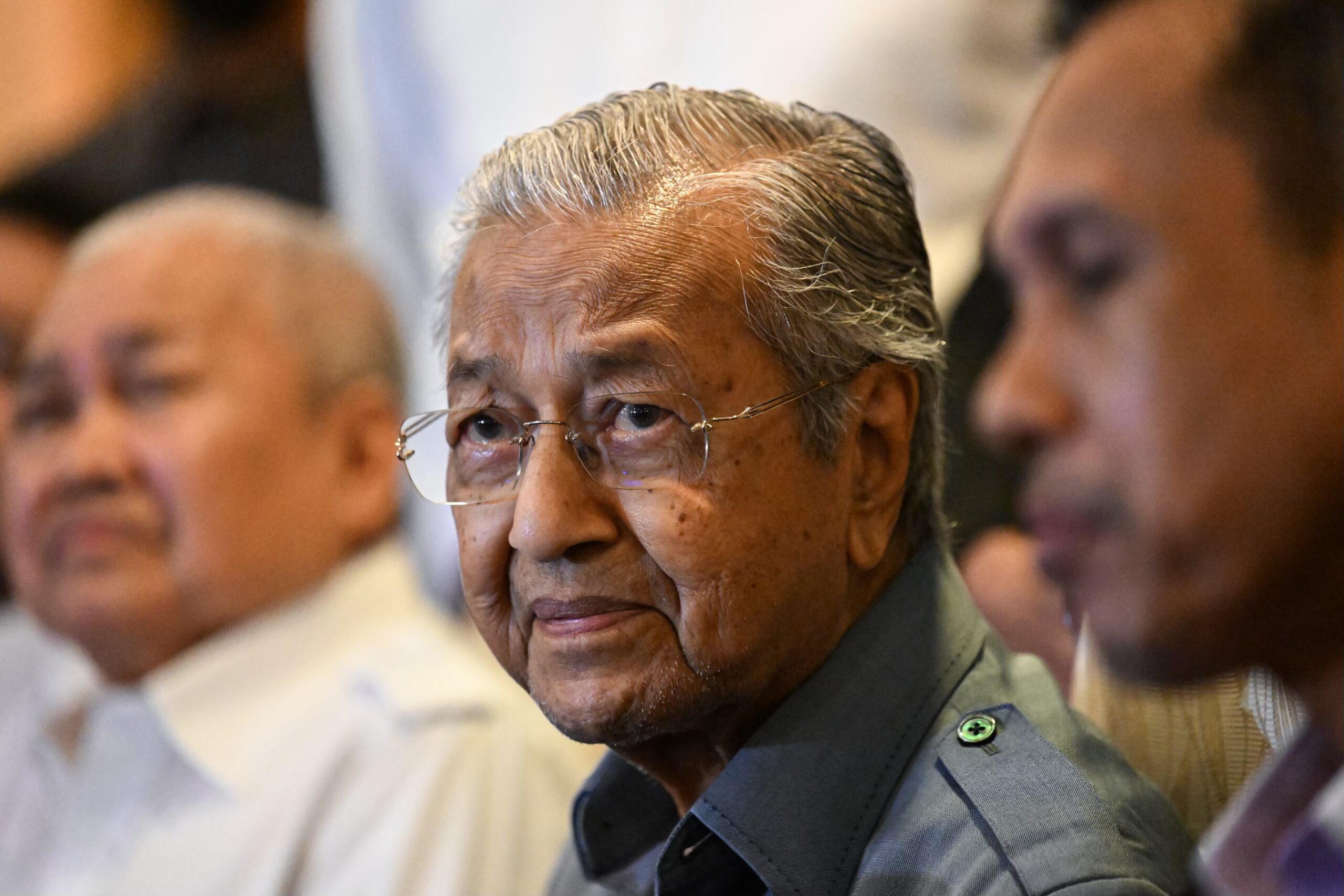Malaysia’s sprawling resort island of Langkawi in the northern state of Kedah is known as an international tourist destination of palm trees and beautiful beaches. And it is this idyllic setting that will be the last stand of the man who has dominated the Malaysian political landscape for over four decades.
After the dramatic collapse of Dr Mahathir Mohamad’s last coalition in 2020, the 97-year-old is eying a political comeback with his newly formed party, Pejuang, which translates to the Homeland Fighters’ Party. These elections on 19 November are expected to be incredibly close and even if Mahathir’s party wins only a handful of seats they could play kingmaker in the next parliament deciding which coalition can form government.
Between 1981 and 2003 Dr Mahathir Mohamad led Malaysia with what was occasionally described as an iron-fist. His harsh non-compromising political strategy saw the promotion of racial politics in the deeply multiracial country and the pushing of a ‘Malay first’ agenda. His economic policies also saw the country rapidly develop.
A bitter and dramatic falling out with his anointed successor, Anwar Ibrahim, in the late 1990s led to his protégé calling for his resignation and the mass protest movement known as Reformasi which spawned the birth of modern democracy in Malaysia. The movement called for reforms like freedom to protest, free and fair elections, and the end of one-party domination in the country.
He retired in 2003, but struggled to keep his hands out of politics as his new chosen successors charted their own course and ignored his advice at times. In 2018, in the 14th general election he made a dramatic return to politics, leading the opposition coalition of parties once sworn against him to a historic electoral victory and ousting the United Malays National Organisation (UMNO) from power for the first time ever.

However, Mahathir’s return to the prime minister’s office was short-lived, and by 2020 he was out of power as his coalition collapsed due to infighting and UMNO returned to power through party defectors.
Now, at 97 years old, Mahathir sees the upcoming 15th general election as a chance to right the wrongs of the last time around. Speaking to the Globe from his offices in the Malaysian administrative capital Putrajaya, he is defiant and stubborn, and dismisses the fact that a wide range of political analysts expect Pejuang to perform poorly at the polls. In a country where on the ground party machinery and long-term loyalties of voters matter, Pejuang doesn’t appear to be in the same league as the other coalitions contending this election.
“We fielded more than half the number of seats available, we have to be more than half, because we hope we can get sufficient votes to form a government on our own without the support of others,” he said.
Malaysia’s parliament has 222 seats, and Mahathir’s coalition, of which Pejuang is the main party, is fielding in 125 of them. When pushed on the fact that no serious political analyst expects his party to win more than a small handful of seats, if lucky, Mahathir laughs and says all parties will need to negotiate after the election.
“We hope to be the party that wins the most seats, it might not be enough to form a government, but we hope we would have the biggest number of seats which would mean we would be able to ask other parties to join us to form a government,” he said.
He is unapologetic about his last time in office and the chaos that led to the Pakatan Harapan coalition being turfed out after just two years in power. Mahathir’s leadership of the PH coalition collapsed after he was pressured to step down as PM and make way for Anwar to take over the top job.

Mahathir says the parties became “arrogant” after winning the election and refers to his opponents in the mainly Chinese-Malaysian dominated Democratic Action Party (DAP) who wanted him to step down as “extremists”.
“After winning and forming the government they were oppressive against business for example and they ran me down. Many of the extremists not only criticised me, but ran me down. This have given the impression that Pakatan Harapan belongs to DAP,” he explained.
He dismisses the prospect of working with the Pakatan Harapan coalition again after the elections even if no one holds a clear majority in parliament.
“Unfortunately, PH has made itself very unpopular, particularly with the Malays, because they had appointed me as their prime minister and then they ran me down, they criticised me and made it appear that I could not control PH. This made the Malays unhappy,” he says.
Mahathir is a man defending an island without allies. Both UMNO and the two main opposition coalitions this election have dismissed his party and refused to work with him. His party is fielding for many seats, but lacks the ground machinery to be competitive in many of those races.
They had appointed me as their prime minister and then they ran me down, they criticised me”
Mahathir Mohamad
In the recent Johor state elections in March they suffered a huge defeat, failing to reach 12.5% of the vote and losing their financial deposits in every seat they contested. Experts have been watching his performance closely.
Political analyst James Chin says Mahathir’s ego-driven belief he could be prime minister again may actually weaken his negotiating position post-election. He would be wiser to focus his party’s energy on a handful of winnable seats, such as Langkawi, his son Mukhriz Mahathir’s nearby seat, as well as several others in Kedah where his party holds incumbency. Kedah as a state has been Mahathir’s power-base for decades and his legacy is strong there. But by spreading themselves across the whole electoral map they will likely fail.
“The reason why nobody wants to work with him, is because of his bad reputation, but also most people think Pejuang can’t deliver,” Chin said. The maximum they can win is two seats I think, in my opinion they will be lucky to hold on to Mahathir’s Langkawi seat alone.”
With many youth voters voting for the first time due to automatic voter registration and the lowering of the voting age to 18 years, Mahathir must appeal to voters who don’t have nostalgic views of his first time in office in the 1980s and 1990s.
Despite approaching 100 years of age, he believes he is still the best person to lead the fight against “corrupt” politicians, a reference to UMNO, Najib Razak, the former PM who now sits behind bars and his allies. Najib, the prime minister before the 2018 elections, was jailed for his involvement in the wide ranging multi-billion dollar corruption scandal known as 1MDB where government money was diverted into his private bank accounts.

“As long as I am alive and capable I think that I should try to ensure that the best thing should happen to the country by eliminating people who are proven criminals from getting into power,” he said. According to Chin, Mahathir’s legacy will be mixed. He will be remembered as Malaysia’s longest leader, but also as a long-term proponent of ‘Malay supremacy’ and using race and religion for political gain. He said the chaos of Mahathir’s last few years and his determination to cling to power has made him a “diminished figure” in many people’s eyes.
When asked what he thinks his legacy will be in Malaysia, Mahathir laughs.
“Actually, I don’t care what they remember, because once you are dead and gone someone will come along and debunk everything I have done anyway, so I won’t be around anyway, I don’t care what my legacy is,” he said with a smile.
Of all his answers this might be his most honest.
Jarni Blakkarly is an investigative journalist based in Melbourne, Australia. He has previously worked for the Malaysian-based online publication Malaysiakini and has reported on Malaysia for the BBC World Service, Australian Broadcasting Corporation and Al Jazeera English.


